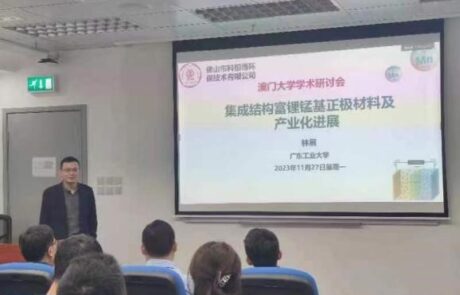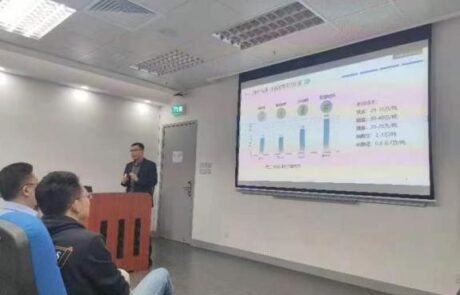Prof. Zhan LIN from Guangdong University of Technology (GDTU) gave a talk entitled ‘High-specific Energy Lithium-ion Batteries Based on Silicon Anode/Lithium-rich Cathode’ at the institute of applied physics and materials engineering on Nov. 27, 2023.
At the seminar, Prof LIN, shared his latest research results in the fields of high-specific Energy Lithium-ion Batteries. In the lecture, Professor Lin shared with us that the pursuit of high specific energy density (approximately 350 Wh/kg) and good safety has always been the goal of the lithium-ion battery community, crucial for the widespread adoption of electric vehicles. Professor Lin highlighted that silicon, an ideal anode material for lithium-ion batteries, boasts a theoretical capacity ten times greater than graphite (4200 vs. 372 mAh/g), effectively meeting the high specific energy density requirements of power batteries. However, due to a volumetric change of up to 300% during cycling, the electrode structure is severely damaged, leading to a decrease in battery stability. In the cathode system, the high-specific-energy layered lithium-rich manganese-based cathode material possesses a remarkably high theoretical specific capacity (>250 mAh/g), also effectively meeting the demand for the high specific energy density of power batteries. Nevertheless, challenges such as voltage decay and capacity attenuation have hindered their commercialization. Ongoing research indicates that these attenuations are attributed to the release of oxygen at high voltages and electrolyte corrosion. This report focuses on improving the cycling performance of silicon-based anodes through high-performance binders and underscores the crucial role of the double modification strategy for the performance of lithium-rich manganese-based cathodes. These advancements hold the potential for the commercialization of lithium-ion batteries with high specific energy density in the near future.



